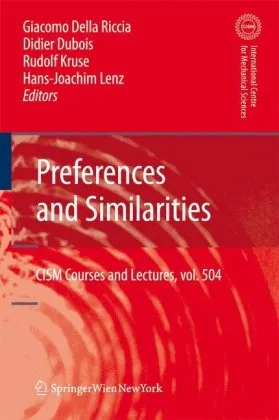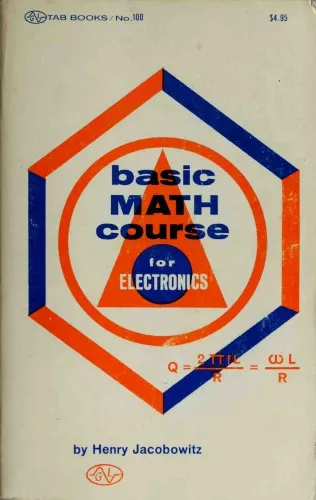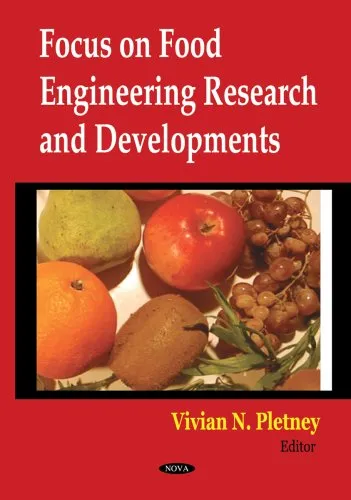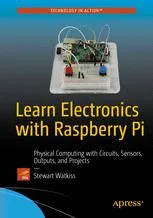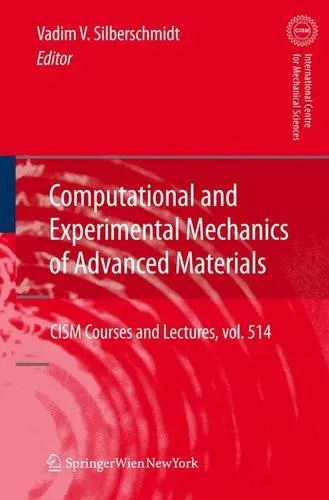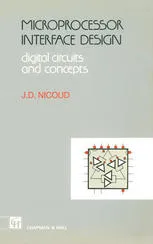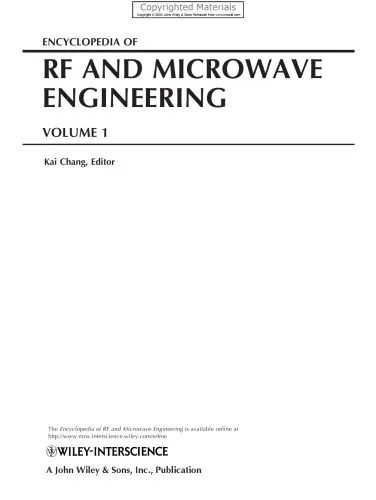Preferences and Similarities (CISM International Centre for Mechanical Sciences)
4.5
بر اساس نظر کاربران

شما میتونید سوالاتتون در باره کتاب رو از هوش مصنوعیش بعد از ورود بپرسید
هر دانلود یا پرسش از هوش مصنوعی 2 امتیاز لازم دارد، برای بدست آوردن امتیاز رایگان، به صفحه ی راهنمای امتیازات سر بزنید و یک سری کار ارزشمند انجام بدینکتاب های مرتبط:
معرفی کتاب: Preferences and Similarities (CISM International Centre for Mechanical Sciences)
کتاب "Preferences and Similarities" که توسط Giacomo Riccia, Didier Dubois, Hans-Joachim Lenz و Rudolf Kruse نوشته شده است، یکی از منابع مهم و بینالمللی در زمینه تحلیل ترجیحات و شباهتها به شمار میرود. این اثر در مرکز بینالمللی علوم مکانیکی (CISM) منتشر شده و به بررسی اصول، تکنیکها و کاربردهای عملی مفهوم ترجیحات و سنجش شباهتها در حوزههای مختلف میپردازد. در این کتاب تلاش شده تا از دیدگاههای چندبعدی به موضوع نگریسته شود و برای مخاطبانی که علاقهمند به زمینههایی مانند Artificial Intelligence، Decision Theory و Data Analysis هستند، مطالبی ارزشمند ارائه شده است.
خلاصهای از کتاب
این کتاب به طور جامع به بررسی نحوه مدلسازی ترجیحات افراد و سنجش شباهتها در سیستمهای مختلف میپردازد. نویسندگان با استفاده از متدولوژیهای نوین ریاضی و ابزارهای محاسباتی متمرکز بر Machine Learning، تلاش کردهاند تا ساختاری فراهم کنند که بتواند نوع ارتباط میان دادهها را با دقت بالا شناسایی کند. کتاب به ویژه به نقش مدلهای fuzzy در تحلیل دادهها پرداخته و کاربردهایی عملی مانند مدیریت ریسک، تحلیل اجتماعی، و تصمیمگیریهای معتبر را بررسی کرده است. در این راستا، نویسندگان از مفاهیم کاربردی در سیستمهای چندمعیاره برای ارائه راهحلهای مؤثر استفاده کردهاند.
نکات کلیدی
- معرفی روشهای پیشرفته برای تحلیل ترجیحات در محیطهای پیچیده.
- بررسی نقش سیستمهای fuzzy در سنجش شباهتها و تصمیمگیریهای مبتنی بر داده.
- ارائه کاربردهای عملی در زمینههای مختلف از جمله مدیریت پروژه، پزشکی، و اقتصاد.
- استفاده از نظریه تصمیمگیری چندمعیاره برای سنجش کیفیت دادهها.
- تبیین رویکردهای نوین محاسباتی در تحلیل دادههای نامطمئن (uncertain).
جملات معروف از کتاب
"Understanding preferences is not merely about capturing choices; it's about delving into the underlying motivations and contexts that shape decision-making."
"Similarity is not a rigid concept; it evolves as our understanding of patterns, structures, and objectives grows."
"Fuzzy systems provide a lens through which we can address the complexity and uncertainty inherent in real-world data."
چرا این کتاب مهم است؟
کتاب "Preferences and Similarities" نه تنها یک منبع علمی دقیق و جامع محسوب میشود، بلکه تأثیرات عمیقی بر حوزههای تصمیمگیری چندمعیاره، تحلیل داده، و هوش مصنوعی داشته است. امروزه، در دنیایی که دادهها به طور فزایندهای پیچیده و چندبعدی میشوند، درک اصول ترجیحات و نحوه ارزیابی شباهتها اهمیت بسیاری دارد. این کتاب به خوانندگان کمک میکند تا مهارتهای تحلیلی خود را بهبود بخشند و چارچوبهای نظری قدرتمند برای بررسی مسائل واقعی ایجاد کنند. همچنین، برای دانشجویان، محققان و متخصصانی که در حوزههای مرتبط فعالیت میکنند، این اثر پلی میان تئوری و عمل فراهم کرده است.
Preferences and Similarities: A Comprehensive Exploration
"Preferences and Similarities," part of the esteemed CISM International Centre for Mechanical Sciences series, delves into the intricate world of decision-making and classification. Authored by Giacomo Riccia, Didier Dubois, Hans-Joachim Lenz, and Rudolf Kruse, this book is an essential resource for researchers, academics, and practitioners seeking deeper insights into preference modeling and similarity assessment. By combining theoretical foundations, practical methodologies, and real-world applications, this scholarly work offers a multidimensional view of concepts that govern both human and machine decision-making processes.
Detailed Summary
At its core, "Preferences and Similarities" examines two fundamental aspects of decision-making systems: preferences and the concept of similarity. These constructs are pivotal for modeling phenomena ranging from individual decision-making to broader computational systems such as artificial intelligence and machine learning algorithms.
The book begins by discussing preference modeling, where the authors present mathematical frameworks for capturing and representing user preferences across various domains. Whether it's a consumer choosing between products or a recommendation system personalizing suggestions, preferences are inherently complex and subjective. The authors break down the logic and techniques necessary to quantify and analyze these subjective choices.
Next, the text dives into the realm of similarity, exploring how entities can be compared, grouped, and classified based on shared attributes. Topics such as fuzzy logic, probabilistic reasoning, and machine learning algorithms are thoroughly explored to demonstrate how similarity assessments are applied in modern-day technology and systems.
Practical examples and applied methodologies are interwoven throughout the book, making theoretical concepts accessible and actionable. From clustering techniques in data analysis to advanced preference-based decision-making tools, the content is designed to cater to a diverse audience of learners. By the end of the book, readers will have a strong understanding of how preference modeling and similarity assessment play crucial roles in solving complex problems in mechanical sciences and beyond.
Key Takeaways
- A detailed exploration of theoretical and practical frameworks for modeling preferences in decision-making systems.
- In-depth analysis of similarity assessment techniques using fuzzy logic, clustering, and probabilistic reasoning.
- Real-world examples that illustrate the application of concepts in fields ranging from artificial intelligence to mechanical sciences.
- Insights into the evolving role of preference and similarity metrics in solving multidisciplinary challenges.
- A balance of rigorous academic theory and hands-on, practical insights that cater to both beginners and seasoned professionals.
Famous Quotes from the Book
“Preferences and similarities are the cornerstones of both human intuition and computational intelligence, bridging subjective values with actionable metrics.”
“Understanding preference is more than grasping choice—it’s about building systems that respect human complexity.”
“Similarity is not just a way to compare entities; it’s a foundation for clustering, association, and knowledge extraction.”
Why This Book Matters
In an era where technology continues to advance at an incredible pace, understanding how preferences and similarity metrics operate is fundamental to shaping intelligent systems. Whether it's personalizing user experiences or clustering vast datasets for actionable insights, these concepts are indispensable to the modern world. "Preferences and Similarities" stands out as a definitive resource that brings together rigorous academic research and cutting-edge applications to simplify complex ideas.
This book does more than just educate—it inspires innovation by equipping researchers, engineers, and decision-makers with the tools to handle nuanced problems. Its depth, clarity, and emphasis on practicality make it uniquely valuable not just to the domain of mechanical sciences, but also to allied fields such as artificial intelligence, data science, and operational research. Whether you're a scholar looking to deepen your understanding or a practitioner in search of advanced tools, this book is a cornerstone for anyone invested in the interplay of human preferences and systematic decision-making.
دانلود رایگان مستقیم
شما میتونید سوالاتتون در باره کتاب رو از هوش مصنوعیش بعد از ورود بپرسید
دسترسی به کتابها از طریق پلتفرمهای قانونی و کتابخانههای عمومی نه تنها از حقوق نویسندگان و ناشران حمایت میکند، بلکه به پایداری فرهنگ کتابخوانی نیز کمک میرساند. پیش از دانلود، لحظهای به بررسی این گزینهها فکر کنید.
این کتاب رو در پلتفرم های دیگه ببینید
WorldCat به شما کمک میکنه تا کتاب ها رو در کتابخانه های سراسر دنیا پیدا کنید
امتیازها، نظرات تخصصی و صحبت ها درباره کتاب را در Goodreads ببینید
کتابهای کمیاب یا دست دوم را در AbeBooks پیدا کنید و بخرید
1249
بازدید4.5
امتیاز0
نظر98%
رضایتنظرات:
4.5
بر اساس 0 نظر کاربران
Questions & Answers
Ask questions about this book or help others by answering
No questions yet. Be the first to ask!
